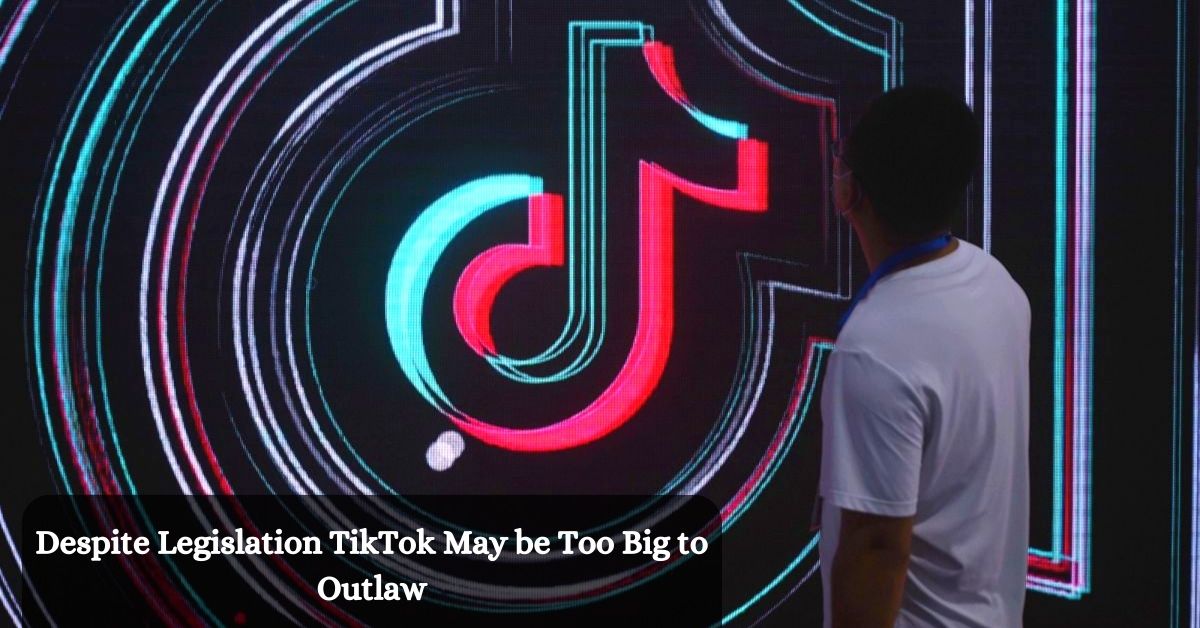Here you will read details about TikTok may be too big to outlaw. Callie Goodwin of Columbia South Carolina released her first video on TikTok in July 2020 to promote the small business she had founded in her garage during the epidemic. At the time former President Donald Trump had threatened to ban the app in the United States.
While Goodwin was quarantined, a neighbour brought her brownies and a handwritten message, which inspired her to start a greeting card business called Sparks of Joy Co., which sells pre-stamped cards. Just a few months later Goodwin’s business took off after a TikTok star with a couple of million followers shared one of Goodwin’s cards on her account.
Goodwin now 28 years old recently told that more than 90% of her orders originate from people who find out about her business on TikTok. With a ban in place, “I would see business plunging,” Goodwin said on CNN. There would be a significant drop in my sales.
TikTok’s Banning has been Unlikely for Two Years
It was said that after two years TikTok will be banned. But as everyone knew Tiktok followers are increasing every month. So we think TikTok may be too big to outlaw. Even after Trump took office, TikTok’s popularity only grew. Sensor Tower an analytics company reports that it was the most downloaded app in the United States in both 2021 and so far this year (2022). By doing so, TikTok, which claimed to have 100 million US users by 2020, became even more integral to American culture and the fortunes of cultural influencers and company owners like Goodwin.
However, since July of 2020, the future of TikTok in the United States has seemed dubious at best. Many Republican governors, including those of several states only on Thursday, have announced that TikTok will no longer be allowed on state-issued devices. Apple and Google have been put under pressure to crack down on the app by state attorneys general and a Republican FCC commissioner. Furthermore, this week, three United States legislators led by Senator Marco Rubio, the ranking Republican on the Senate Intelligence Committee, submitted a measure that wants to once again restrict TikTok in the United States since its parent business is based in China.
A larger ongoing reckoning is taking place about the influence that TikTok and other social media platforms have on their youngest users and this increasing political scrutiny is part of that. Recently, concerns have been raised about the algorithms that power TikTok and whether or not they may direct viewers to information that could be detrimental to them, such as videos and comments that glorify or normalise suicide or promote unhealthy body image.
TikTok via its parent business in China has also been criticised in Washington. In January of this year, Buzzfeed News published an article claiming that Chinese hackers frequently accessed customer data from the United States. The article quoted an anonymous employee as saying, “Everything is seen in China.” However, TikTok has acknowledged that some staff in China have access to data belonging to users in the United States.
For quite some time TikTok has been in talks with the United States government and the Committee on Foreign Investment in the United States (CFIUS) about a potential settlement that would address the lingering national security concerns and allow the app to continue operating in the United States. There have been rumours of holdups in such talks recently.
Now, new and old songs (like the 1980s tune “Break My Stride”) may be found at the top of streaming charts thanks to TikTok. One grocery store saw a 200% increase in Feta sales after a baked spaghetti dish became viral on the app. In the run-up to the midterm elections in the United States, many politicians used the app to spread their message. Even the Associated Press, which has been around for 176 years, has joined TikTok in an effort to expand its user base.
TikTok May be Too Big to Outlaw
At the same time that it has been expanding its presence in the United States, TikTok has been striving to allay fears that the app may have a negative effect on American users’ privacy and data.
Bytedance, a Chinese conglomerate, owns the company and has promised to move its US user data to Oracle’s cloud platform and take other measures to protect the privacy of its American customers’ information. Last week, TikTok announced that it would separate its US-focused content moderation, policy, and legal teams from its other global teams and place them under the leadership of US-based executives.
A representative for TikTok issued the following statement in reaction to the proposed ban: “It is unfortunate that some members of Congress have decided to advocate for a politically-motivated ban that will do nothing to help the national security of the United States.”
Means of Support and Survival
TikTok has been “vital” for the success of 30-year-old Columbus, Ohio baker Adrianna Wise’s bakery, but it has also been an important means by which she has been able to contact young people of colour in her community and impart business advice to them.
Wise who is also the co-founder of Coco’s Confectionary Kitchen told “I notice the influence that I’m having when I go out into the neighbourhood and people are like, ‘Oh my gosh, I follow you TikTok. A young girl told me a couple of weeks ago,’ It was just so cool.
Final Lines
Here we read about TikTok may be too big to outlaw, because many people are using it in today’s time. So it will not be easy to ban the app. You can also share your views regarding this in the comment section. Keep following venturejolt.com for more updates. Don’t forget t bookmark our site for the latest news updates.
